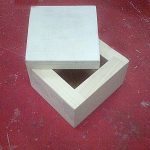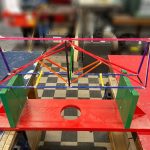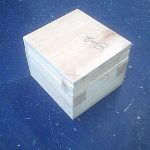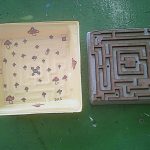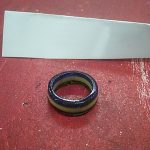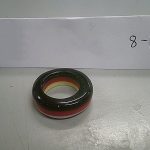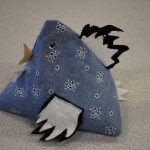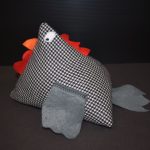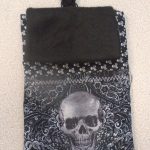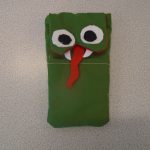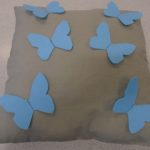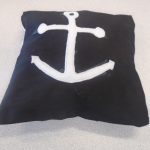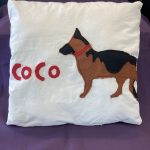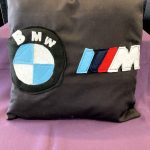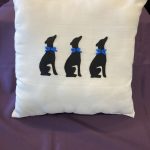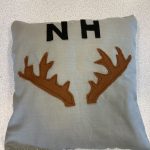Weobley High – Design and Technology
Subject leader for Design & Technology: Mrs Juliard
Teaching staff: Mr Mills, Mrs Warley
Technicians: Mrs Lee, Mr Waring
Welcome to the Weobley High School Design and Technology Department.
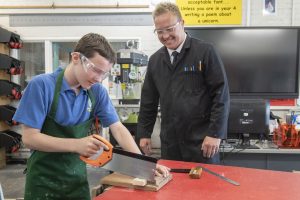 We are committed to providing all pupils with a high-quality curriculum which inspires them to become self-motivated and confident learners.
We are committed to providing all pupils with a high-quality curriculum which inspires them to become self-motivated and confident learners.
This thriving department is run by an experienced team of Teachers and Support Staff. We are very lucky at Weobley to have a wide-range of facilities.
At KS3, pupils will study Resistant Materials, 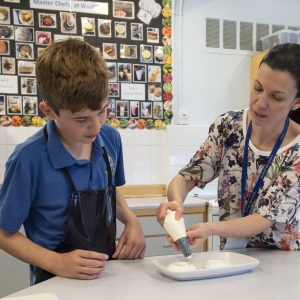 Graphics and Systems and Control in the DT Workshop. The pupils also have access to the ‘DART’ Computer Suite, which is a shared facility with the Art department. Here they will experience using CAD programs and also watch the school’s 3D printer in action!
Graphics and Systems and Control in the DT Workshop. The pupils also have access to the ‘DART’ Computer Suite, which is a shared facility with the Art department. Here they will experience using CAD programs and also watch the school’s 3D printer in action!
At KS3, pupils also study Cooking and Nutrition. The food room at Weobley is fully-equipped, which allows pupils to create a wide variety of dishes. This is a really popular subject at Weobley and the pupils also have the option to attend a Cooking Club after school on a Wednesday 3:30-4:45pm.
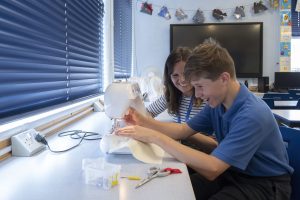 Students will have the opportunity to experience Textiles in Years 7 and 8 in our purpose-built Textiles suite. They will enjoy learning how to hand sew to create an Emoji keying. They will then progress to using the sewing machine in order to create a range of textile items.
Students will have the opportunity to experience Textiles in Years 7 and 8 in our purpose-built Textiles suite. They will enjoy learning how to hand sew to create an Emoji keying. They will then progress to using the sewing machine in order to create a range of textile items.
For a detailed breakdown of the topics studied at KS3, please click on the link below.
Click here for link to list of KS3 Projects
At KS4, we currently offer GCSE Design and Technology and GCSE Food Preparation and Nutrition. Please click on the links below for further information.
Click here for link to KS4 Specification for GCSE Food Preparation and Nutrition
Click here for link to KS4 Specification for GCSE Design and Technology
The DT department also run a daily lunch time club for catching up on work and on Thursday run a KS3 DT recycling club.
Intent
The Design and Technology department at Weobley is committed to providing all pupils with a high-quality curriculum which inspires them to become self-motivated and confident learners. We aim to instil a love of learning in all of our pupils, across all Technology areas.
Design and Technology develops a pupil’s ability to solve design problems in a rational and organised way by broadening their knowledge of materials and techniques, leaving plenty of scope for imaginative and creative flair. Our mission is to provide a coherent and sequential curriculum that builds confidence and encourages pupils to embrace an ever-changing technological world.
Our curriculum has been designed to give all students the opportunity to learn the skills and knowledge to engage positively with materials, components, products, and technologies in the world around them. We aim to teach pupils to be imaginative and adaptable, to make significant progress in their achievements, and to use technology appropriately and safely.
Implementation
The DT curriculum is collaboratively and coherently planned and sequenced across Years 7- 9/GCSE to ensure that pupils build on all aspects of prior learning and it also stretches and challenges all pupils regardless of life experiences or starting points. The schemes of work have been mapped against the National Curriculum and the Design and Technology Association (DATA) Progression Framework to ensure that all of the skills are embedded into the curriculum.
At Key Stage 3, all pupils study Design and Technology for two hours each week. In years 7 and 8, Textiles is taught on a half-yearly rotation with Cooking and Nutrition. In Year 9, all pupils study Cooking and Nutrition for the full academic year. Resistant Materials/Graphics/Systems & Control are studied during Design and Technology lessons at Key Stage 3. All of our Design and Technology lessons at Weobley are taught by subject specialist teachers and classes are no larger than 23 pupils.
Continued investment has resulted in modern workspaces equipped with the latest technology for design and manufacture. Cooking and Nutrition is taught in a spacious, well-equipped food room. The adjacent textiles room is equipped with Janome sewing machines and a wide variety of fabrics and embellishments for design and make projects. The Design and Technology workshop provides pupils with access to a wide range of hand tools and machinery. In addition, students are encouraged to embrace CAD-CAM, including graphic design (Google Sketchup), laser technology and 3D Printing.
In Cooking and Nutrition, Years 7, 8 and 9 follow a course based around the National Curriculum which encourages them to understand and apply the fundamental principles of nutrition and healthy eating. The students are required to cook a wide range of predominantly savoury dishes, with the level of challenge increasing each academic year.
In Textiles, Graphics, Resistant Materials and Systems and Control, all schemes of work include the following core competences: Designing, Making, Evaluating and Technical Knowledge. The pupils are given the opportunity to develop their practical expertise through a range of engaging projects.
Key Stage 4
At Key Stage 4, pupils are given the option to Study GCSE Design and Technology or GCSE Food Preparation and Nutrition. In Year 10, pupils will have 2 hours per week and in Year 11, this increases to 3 hours (consisting of one double and one single lesson). Each term the pupils are introduced to a new topic of study, though some fundamental facts do remain the same and are revisited in order to reinforce understanding.
GCSE Design Technology: Pupils follow the Edexcel Design and Technology specification, which enables them to understand and apply iterative design processes through which they explore, create and evaluate a range of outcomes. Pupils use creativity and imagination to design and make their prototypes. Pupils are encouraged to take design risks, helping them to become resourceful, innovative and enterprising citizens.
GCSE Food Preparation and Nutrition: Pupils follow the Eduqas GCSE specifications in Food Preparation and Nutrition which equips students with the knowledge, understanding and skills required to cook and apply the principles of food science, nutrition and healthy eating. In Year 10, the pupils cover a majority of the syllabus, as both Non-Examination Assessments (NEA) are completed in Year 11. They have the opportunity to develop their cooking skills by cooking on a weekly basis.
Extra-Curricular
The Design and Technology Department is keen to enhance our pupils’ learning experience and offer ‘Catch up Club’ daily in the Workshop or Food Room and Cooking Club after school on a Thursday (3:30-4:45pm). We aim to provide a positive experience at Weobley and encourage students to enjoy some creative time! Department displays and schemes of work also promote possible career opportunities for any pupils considering future employment in the technological world.
Impact
At Weobley High School the impact of the Design and Technology Curriculum will be such that:
- Pupils will have a positive experience of DT and engage with their learning in lessons. This will be reflected in the number of students opting for GCSE Food Preparation and Nutrition and GCSE Design Technology.
- Pupils will leave school with the practical expertise needed to perform everyday tasks confidently and to participate successfully in an increasingly technological world.
- Pupils will have acquired the skills needed to cook a repertoire of predominantly savoury dishes so that they are able to feed themselves, and others, a healthy and varied diet.
- Pupils will feel prepared for the next transition into education or employment and will have confidence in the subject, having embedded, developed and applied knowledge and skills learned from Key Stage 3 to Key Stage 4.
We assess this impact by the regular monitoring of our teaching and the assessment of pupils’ learning and understanding. Assessments may happen in a range of ways, such as through assessing practical work, questioning, end of term assessments, and self- or peer-assessment. Teachers are clear about the assessment criteria, which both helps pupils to improve their attainment and motivates them. Assessments are designed so that teachers can identify specific gaps in pupils’ knowledge and any potential misconceptions.
In Design and Technology, we measure the impact of our curriculum in a variety of ways including:
- Learning walks/lesson observations and professional dialogue with teachers
- Book Monitoring
- Pupil engagement and teacher feedback
- Pupil Questionnaires
- Improved subject vocabulary
- Pupil and teacher progress tracking (including learning journeys).
- Attainment and achievement outcomes
- Attendance and behaviour data
Click here to open the Design & Technology Learning Journey PDF (new tab)
Click here to open the Food & Textiles Learning Journey PDF (new tab)
KS3 Design and Technology
KS3 Food

- Stir Fry
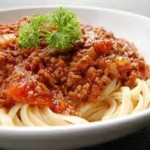
- Spaghetti Bolognaise
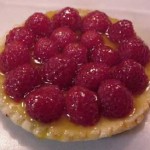
- Raspberry Tart
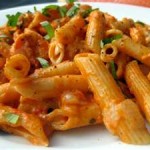
- Tomato Pasta Sauce
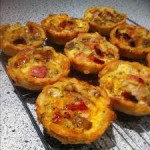
- Mini Quiche
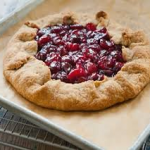
- Fruit Pie

- Cheese Triangles
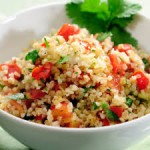
- Cous Cous

- French Bread Pizza
KS3 Textiles
KS4 Food
KS4 Design and Technology
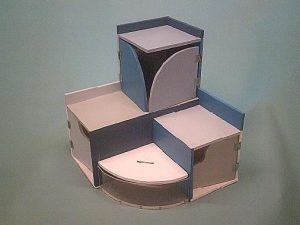
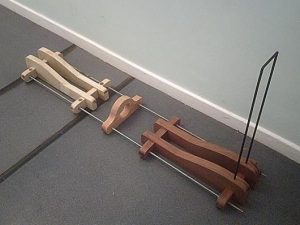
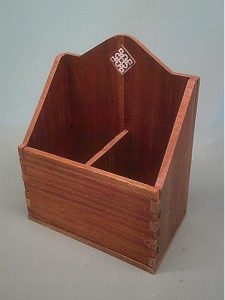

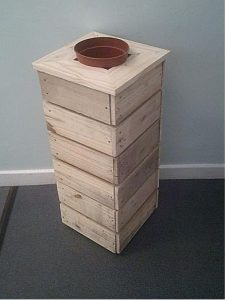
Please see the document below for KS3 recipes and FAQ

